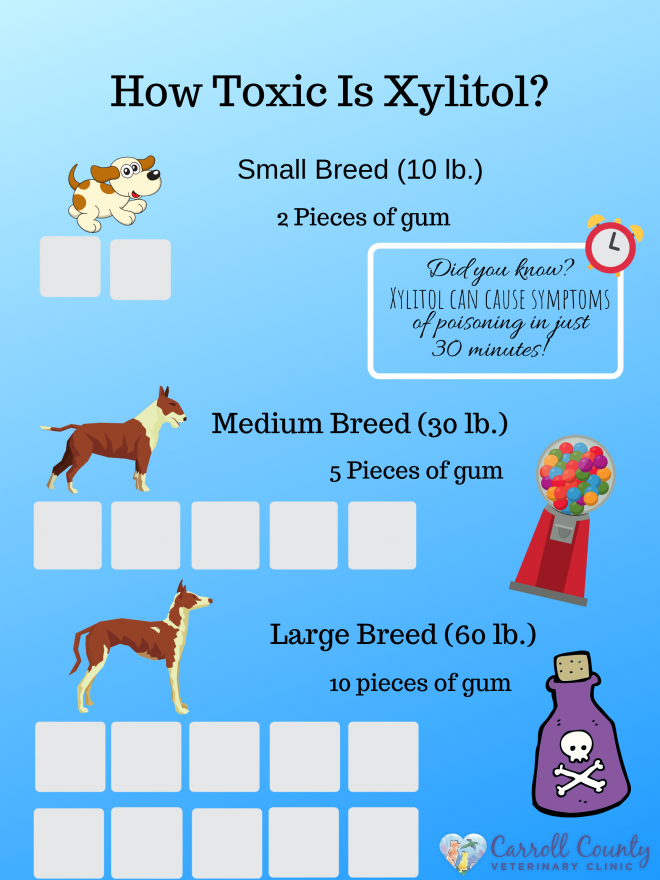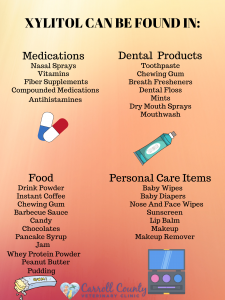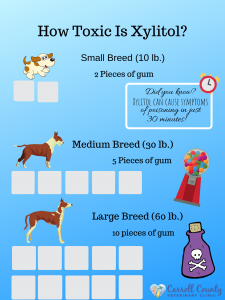
Xylitol and your pet
What exactly is xylitol and why is it dangerous for dogs? Xylitol is a sugar substitute that is found in many human foods. It is not dangerous for people to ingest so generally we don’t think twice about it when we are purchasing our food. It is being used much more frequently and in a larger variety of products than in the past.
So, what’s the big deal with dogs eating xylitol? In dogs xylitol can cause hypoglycemia (a sudden drop in blood sugar) and more recently has been found to cause acute hepatic necrosis (liver failure).The main concern is the amount of human food that xylitol is being added to. One food that we tend to give our dogs regularly is peanut butter. We can easily hide their medicines in it and they are none the wiser. But be careful! Xylitol is being added to many brands of peanut butter these days as a sweetener. Not all brands contain xylitol but be sure to check the ingredients before using it for your pet. Xylitol is being added to more products all the time – here are just a few examples:
How much xylitol is toxic to a dog? 100mg/kg of body weight is considered toxic in a dog however even at a lower dose there is concern for liver damage and hypoglycemia so, it depends on how much is in each particular food product. For example: gums that contain xylitol as an artificial sweetener can be toxic if a small dog ingests just a couple pieces!
Symptoms of Xylitol poisoning can include:
Vomiting
Diarrhea
Lethargy
Jaundice
Seizures
Trembling
If you are concerned your pet may have ingested something containing xylitol call your veterinarian immediately!! This is considered an emergency and if your regular veterinarian is closed call your nearest veterinary emergency hospital. Your pet needs immediate treatment and bloodwork if they consume toxic amounts of xylitol.
If you have any questions or concerns about xylitol and your dog please do not hesitate to call our office at 410-848-3100.


